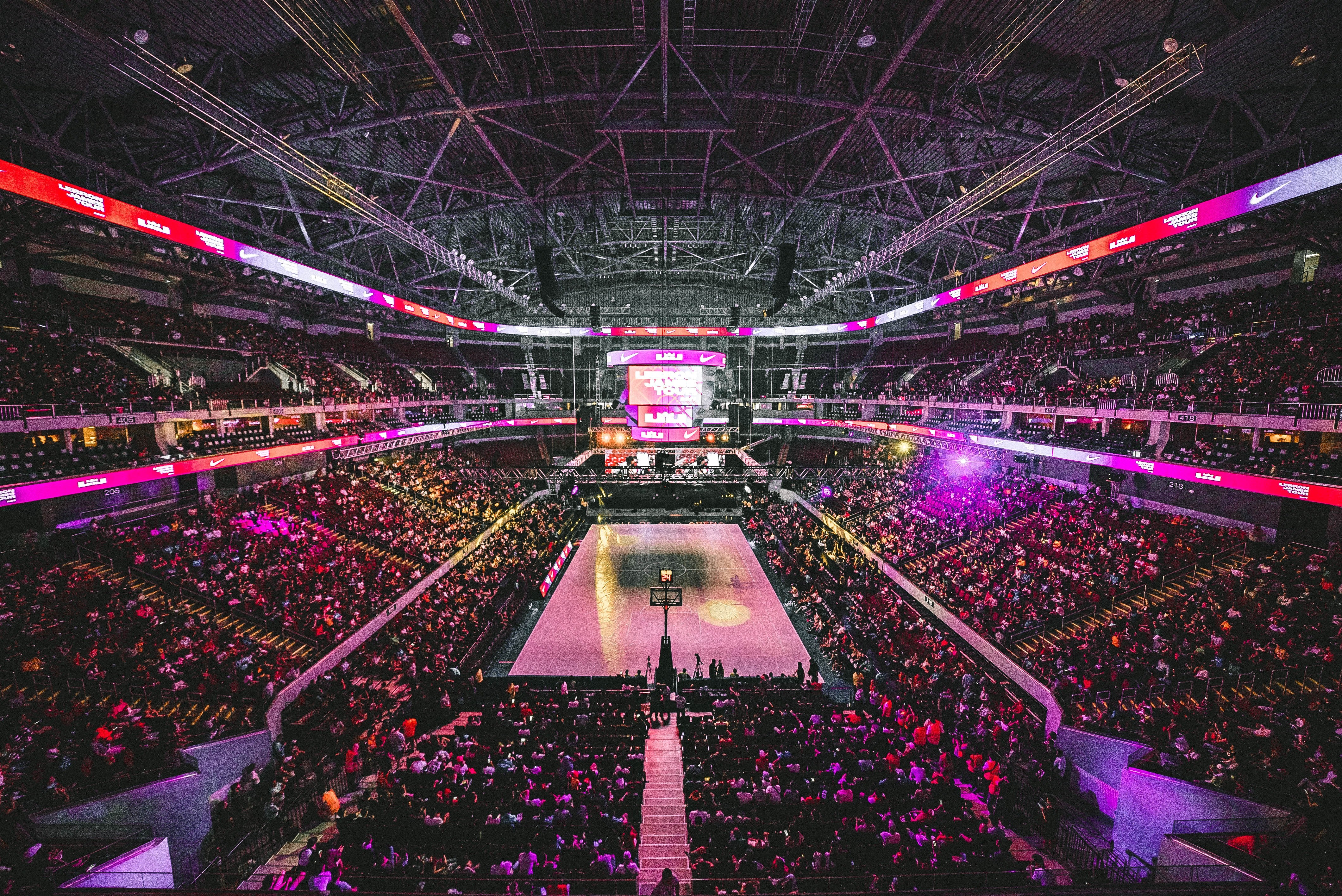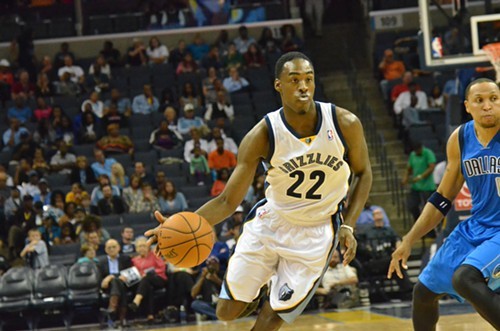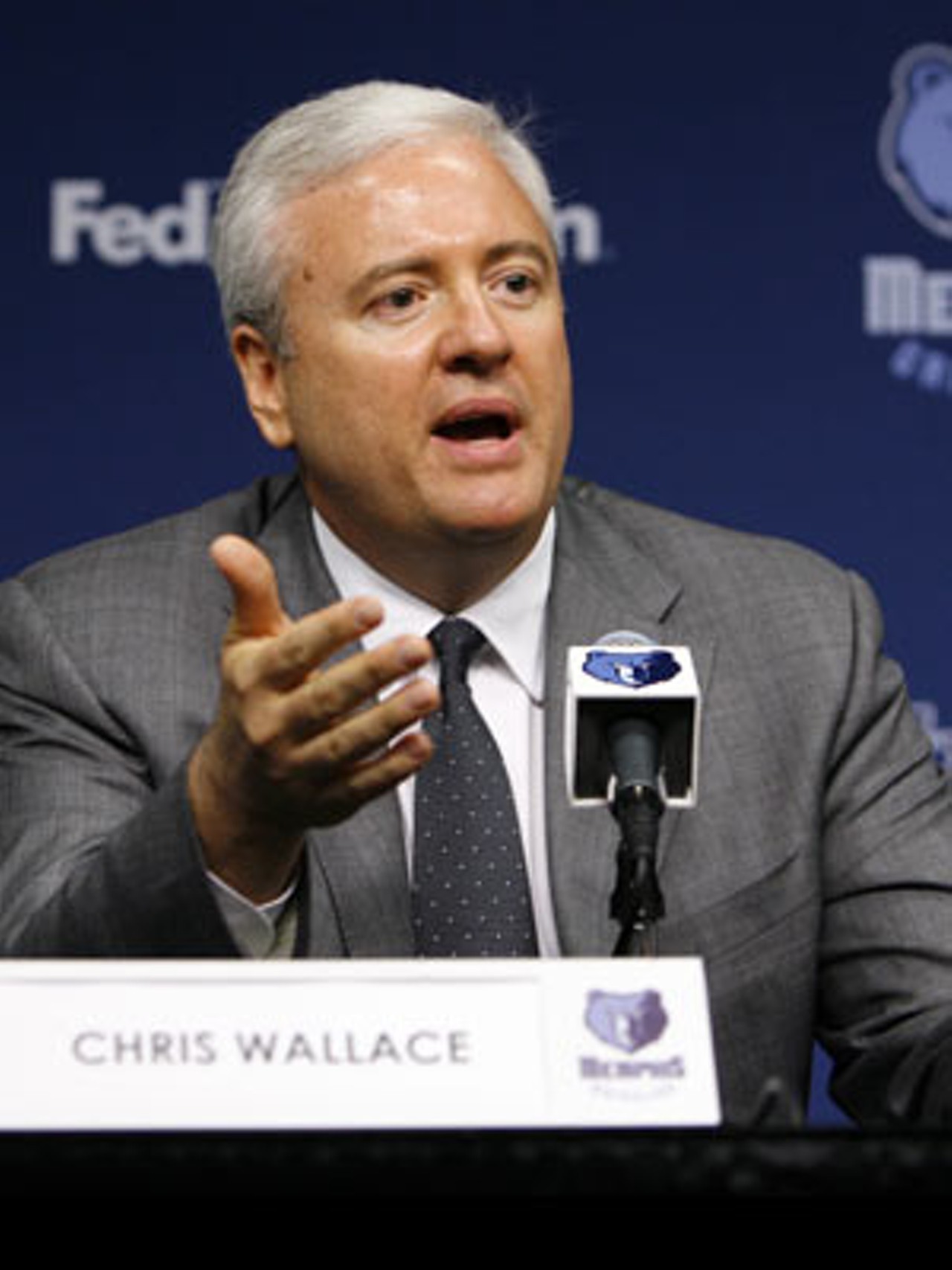
The Grizzlies have their best draft pick in a decade in a draft that’s loaded with talent. So why am I not excited about it?
Why can’t I allow myself to consider what bright, young talent they might acquire on Thursday night that could make the team better for years to come? What’s with the foreboding, the awful sense that if I allow myself even the slightest bit of hope about the Grizzlies’ future I’m subjecting myself to some sort of weird, emotional sadomasochism because I should know better?
We’ve been here before, as Grizzly-watchers. In 2008, when they traded Kevin Love for O.J. Mayo on draft night and after a season it looked like a massive miscalculation. In 2009, when the Grizzlies made what might be, very literally, the worst #2 pick in the history of the draft given what the rest of the 2009 class looked like. In 2010, 2011, 2012, when guys like Sam Young, and DeMarre Carroll, and Josh Selby rolled in without any idea how to play professional basketball and left in the same shape. (Maybe that’s a little unfair to Sam Young, but “most surprisingly decent bad first round Grizzlies pick” is not a category to which I’d want to belong, except for all that guaranteed salary.) There’s such a long and disastrous run of first-round picks back there, behind all those locked doors and “but the playoffs” arguments, that it’s hard to look at the current situation without the trepidation that Oh no, I have seen this situation unfold before, and I need to prepare for the worst.
 Larry Kuzniewski
Larry Kuzniewski
Remember Jamaal Franklin?
The basic problem can be stated pretty succinctly: there are three players that seem like sure things in this draft, but the Grizzlies have the fourth pick. If any one of Deandre Ayton, Luka Doncic, or Marvin Bagley, Jr. fall to the Grizzlies, which seems possible but not likely, they can just pick whichever one makes it to fourth and no matter what happens, it’ll be very hard to call their draft a failure. (I have some pretty serious reservations about Bagley on the defensive end, to the point that I’d rather they not take him even if he falls to them at 4th, but I can’t deny that if they do take him there, it’s still a successful draft.)
That means that the Grizzlies, more than likely, will have to make a decision about a player to draft fourth, and making decisions about players is not something I trust them to do with a fourth-round pick. It hasn’t been long enough since their last stretch of bad picks, and Chris Wallace’s name is still attached to the franchise’s basketball operations.
You can write this off by saying “Chris Makris is a rising star in the front office and has a ton of influence.” You can write this off by saying “Hollinger runs the drafting process.” You can write this off by saying “they’ve made great moves on the fringes the last couple of years.”
These are all things that have been said on the internet in the last two weeks (and seriously, how is it you people have something to say about this every day for two weeks? I got tired just trying to read it all). But they all reinforce something that keeps coming up in the Robert-Pera-era of the Grizzlies: their internal decision-making structure remains opaque to the outside observer, no matter how much they insist that their chains of command are cut-and-dried. If Chris Wallace’s name is still next to “General Manager, Basketball Operations” in the staff directory—and it is, I just looked—I will not be able to put 2009 out of my mind.
Things are different, sure. The Griz have young players of various levels of promise, though none as good as what could be coming their way in this draft. But the warning signs are there: an owner and a GM and a coach who have all said they would have been good last year if not for injuries (debatable) and that they expect to make the playoffs this upcoming season (a risky public proclamation). Rumors swirling that they’d like to move their No. 4 pick and Chandler Parsons’ massive, concrete-shoes contract for the right pick that still keeps them in the lottery but lets them compete immediately. Two max-contract, oft-injured major players over 30 who don’t have time to waste on bad teams and have publicly expressed disinterest in doing so. If the Grizzlies want to keep doing what they’ve been doing since the earliest days of the Grit and Grind Era, when they shipped off a first round pick to dump Thabeet and rent Shane Battier for the playoffs, there’s nothing to stop them from doing it again, with the only high-lottery pick they’ve had since then, taking out a third mortgage on a house with a cracked foundation and a leak in the roof.
I used to buy and sell a bunch of guitars. I was a guitar guy. And part of doing that is paying $600 for a new guitar and finding it’s only worth $350 when you go to trade it in, but the guitar you want is $500, so you chip in $150 cash with the $600 guitar you’ve only played at a couple of gigs and suddenly you’re $250 upside down on a guitar before you go trade it in for something else. Eventually you end up with about $1500 of real money in an early-70’s Japanese bolt-on SG copy so weird and unplayable that it’ll sit in your attic for a year before you even remember it’s up there.

Grizzlies GM Chris Wallace.
The Grizzlies are here. They’ve traded in their trade-ins so many times that there’s no real accounting for how far behind they are, and yet now that they’ve got a real asset, a No. 4 pick in a loaded draft, they’re only looking at the Gretsch Double Anniversary—not even a Country Gentleman, mind you—on the wall and thinking maybe if I trade in a couple more things…
I’ve been there. I know the pull. It’s the reason gambling hotlines exist, the reason people persist in bad habits long after they’ve decided not to, it’s the reason people keep sinking money into cars that are worth less than a nice bookshelf from IKEA. Maybe if we trade in a couple things we could upgrade.
It’s obvious that they shouldn’t. It’s obvious that with Conley and Gasol (and Parsons, who at 29 is now limited to playing like the imagined 35-year-old, non-injured version of himself) under contract for two more years, they can either try to be good the next two years and plan for a quick reload when those contracts are over, or they can tear the thing down to the studs, so to speak, and call in an architect.
And so, try as I might, I am not optimistic about Thursday night. Call me constitutionally misaligned with draft-night optimism. I haven’t even talked about Michael Porter, Jr. and the fact that they might draft a guy with an even more alarming injury than Chandler Parsons’ with the best pick they’ve had in years, and that given their injury history since 2014-15, there’s no way they should even be allowed to speak his name at any point during the 24-hour period surrounding the first pick Thursday night. I haven’t talked about the constant chatter about trading down from 4. I haven’t talked about the fact that Mo Bamba explicitly informed the Grizzlies he wasn’t interested in playing here. Those are all just secondary factors compounding my unease headed into Thursday night.
The simple fact of the matter is that I have no reason to trust that the Grizzlies will do the right thing, and several reasons to believe that they’ll either mortgage their future for a stab at making the 7th seed in 2018-19 or, worse, blow the draft entirely and pick someone who’ll be out of the league once his rookie deal is up. They have to prove to me that something is different before I’ll change how I feel about it. They have to show me that, regardless of how transparent or not the process is, they have a process and it works. They have to show me that I shouldn’t expect the worst, because until that point, that’s the only sane response.